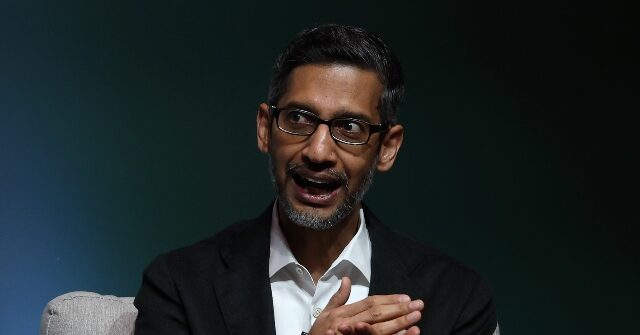On Election Day, a noticeable discrepancy arose in Google’s search results for voters seeking polling locations based on their preferred candidates. Users searching for “Where to vote for Trump” encountered predominantly left-leaning media articles, while those searching for “Where to vote for Harris” received specific, actionable information about polling places. This imbalance sparked outrage and concern among social media users, prompting investigations into the search engine’s bias. Noteworthy mentions on platforms like X included a screen recording that highlighted the disparity between the two searches, reinforcing suspicions regarding Google’s partiality towards the Democratic Party.
The discourse around this issue intensified with the involvement of prominent figures from the media and social media platforms. Emma-Jo Morris, a former political editor at Breitbart News, expressed her dismay over the search results and joined other users in showcasing the conflicting outcomes of the searches. Many users claimed to experience similar issues, underscoring a broader sentiment of mistrust towards the search engine and its potential influence on voter information access. This situation catalyzed discussions about the impact of technology companies on political processes and public opinion leading up to elections.
In a response to inquiries, Google attributed the discrepancies in search results to what they termed a “bug.” According to Google, the term “Harris” inadvertently triggered results associated with a county named Harris in Texas, while “Vance” linked to a similar issue in Ohio. This explanation sought to clarify that the phenomena were not intentional but rather a technical mistake. The company assured users that a fix was on the way, but critics remained skeptical about the sincerity of this claim, citing past instances of perceived algorithmic manipulation that might sway electoral outcomes.
Further complicating the debate was Google’s acknowledgment that only a small percentage of users typically perform searches in this manner for voting information, a statement that some interpreted as downplaying the importance of the issue. However, election experts and analysts remained concerned about the broader implications of such search algorithms and their potential to influence voting behavior. Supporting this line of thought, Dr. Robert Epstein previously reported research suggesting that Google’s search manipulation could have affected millions of votes during the 2020 election, recognizing the profound impact that these digital platforms can exert on democratic processes.
As awareness of the situation grew, scrutiny was directed not only at Google but also at the broader role of technology companies in moderating political discourse. Critics worried about the rising trends of censorship and bias in search results, fearing that such actions may undermine the democratic principle of free access to information. The incident spurred broader conversations about the need for transparency and accountability from tech giants, emphasizing the necessity of regulatory oversight to ensure that no party enjoys undue advantages through algorithm-driven manipulation.
In summary, the controversy surrounding Google’s search results on Election Day brought to light critical discussions about bias, influence, and accountability in the tech landscape. As public trust in technology companies wavers, the need for a more transparent and equitable information environment grows increasingly clear. Voters deserve unbiased access to essential electoral information, and the ongoing dialogue about search manipulation underscores the significance of a fair democratic process in the face of advancing technology.

